In early 2024, we’ll see self-service screening coming to airport checkpoints as a trial. While I can appreciate how technology can make our lives easier, I’m not sure I fully understand this concept?
In this post:
Las Vegas will see self-service TSA PreCheck trial
The Science and Technology Directorate has the Screening at Speed Program, intended to pursue transformative R&D activities that support a vision for increasing airport security effectiveness while dramatically reducing wait times and improving passenger experience.
As the number of air travelers continues to increase, the goal is to create sustainable changes to systems and processes to increase screening efficiency while keeping a stable number of Transportation Security Officers (TSOs).
As part of this, we’re going to see a pilot of a new self-service screening system, which will debut in January 2024 at Las Vegas International Airport (LAS). This will allow TSA PreCheck passengers to complete the screening process with minimal to no assistance from TSOs.
As Screening at Speed Program manager John Fortune describes this initiative:
“Like self-ordering kiosks at fast food and sit-down restaurants, self-service screening allows passengers in the Trusted Traveler Program to complete the security screening process on their own. Travelers will use passenger and carry-on screening systems at individual consoles or screening lanes themselves, reducing the number of pat downs and bag inspections TSOs need to perform and freeing their time to be reallocated to the busier aspects of screening operations. The feedback we’ve already received during testing from both mock passengers and TSOs has been incredibly positive.”
As of now, there aren’t more details of what exactly this will look like. The below concept from 2015 is shared…
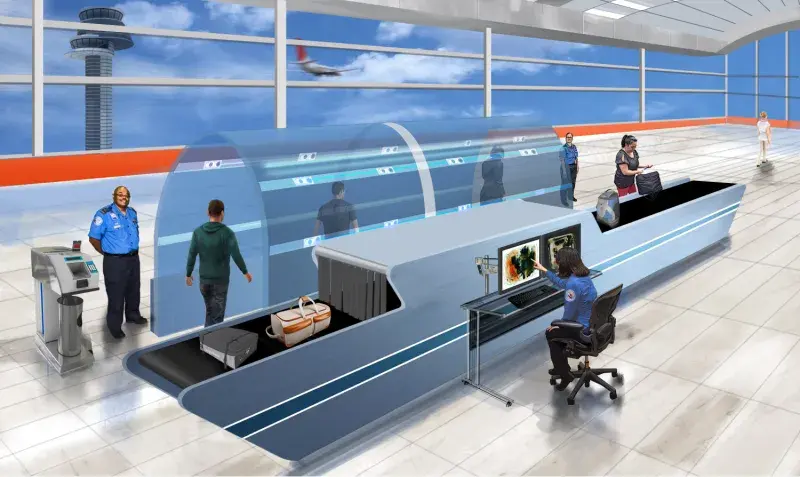
Several contracts have been awarded for these kinds of concepts. This includes Micro-X developing a pod-based design for passengers to use individual screening consoles, consisting of a carry-on screening system and a flat panel passenger screening capability.
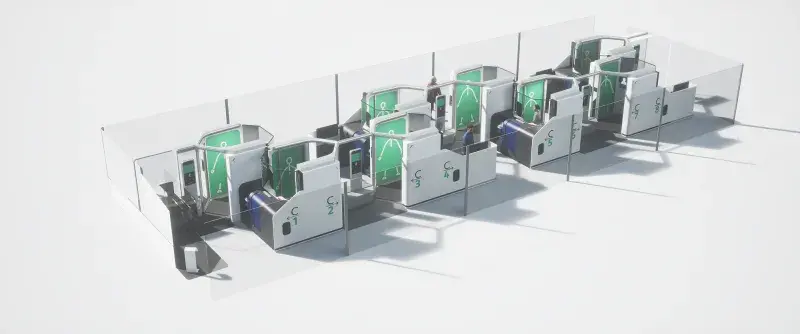
Another concept is Vanderlande’s PAX MX2 prototype, which combines the company’s Automated Screening Lane carry-on bag conveyance system with new and existing Transportation Security Equipment to create four integrated stations for one checkpoint lane.
Why I’m skeptical about this concept
Anything that can simplify the airport screening process without compromising safety is a good thing. However, am I the only one who is skeptical as to whether or not technology can actually solve this problem? Or at least I wonder to what extent this would actually differ from the current reality?
When you think about the current TSA PreCheck process, there’s already very little human interaction:
- At many airports you just insert your driver’s license into a machine, and when the machine makes a noise, the TSO tells you that you can go on your way; you usually don’t even have to show your boarding pass
- You then place your belongings on the x-ray belt on your own
- You then walk through the metal detector, and unless you alarm, you can just keep walking
- You then collect your belongings and can go on your merry way
The only real human interaction is:
- A TSO confirming that your ID has been verified, even if they never touched it
- The TSOs making loud announcements to passengers, reminding them of what they do and don’t have to do
- Potentially being stopped at the metal detector, either because you alarm it due to what you have on you, or because you were randomly selected to go through the full body scanner
- Having your bag inspected due to something suspicious in there
Aside from that first point, I don’t see any way in which automation will simplify the screening process. The press release states the following:
“Travelers will use passenger and carry-on screening systems at individual consoles or screening lanes themselves, reducing the number of pat downs and bag inspections TSOs need to perform.”
But what am I missing? Are we supposed to give ourselves pat downs, and inspect our own bags? Or how else will the number of pat downs and bag inspections be reduced?
I think TSA PreCheck isn’t really the area that needs speed improvements, but rather the general security line. I appreciate how the UK will be eliminating the liquids ban in 2024, which is awesome. I wish we’d see a similar change in the United States.
Bottom line
The TSA is trialing new airport screening technology, which will allow passengers to self-service the screening process. This will launch in January 2024 at Las Vegas Airport, for TSA PreCheck passengers. This is being compared to being able to place your own order at a fast food restaurant, though I’m still not sure I fully understand the concept for airport security.
What do you make of the TSA’s self-service security concept?
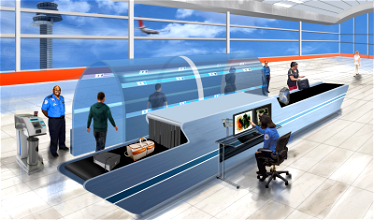

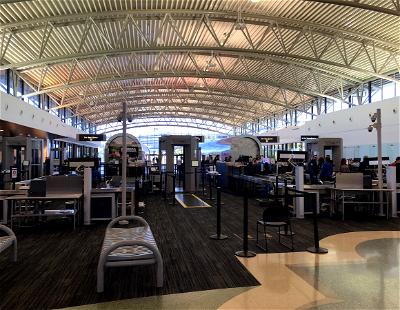
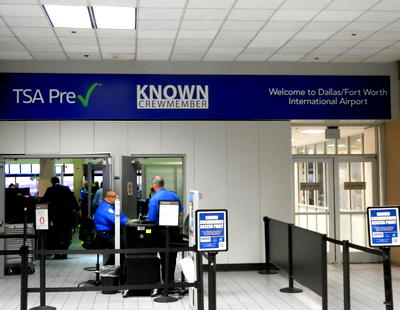
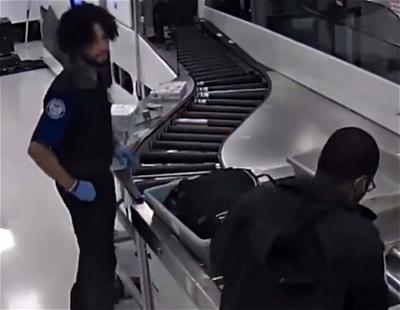
Defund the TSA make the airlines responsible for their own security, why do taxpayers have to foot the bill as usual. These people are the rudest, nastiest, grumpy uneducated people in the workforce. Carnival barkers and security theater period and y’all know it.
What we really need is some system for people with known artifical limbs or knees etc. I get the pat down every single time because I always set off the basic alarm because of my knee. Many times I have to leave my bags on the belt, which helps no one and isn't secure, and go to another scanner in another section of the entrance. Very frustrating and just waste a lot of time. Either I am precheck or I am not.
This assumes that the passenger is intelligent enough to do this . I daily see people that can’t figure out how to use an ATM or automated car wash.
The TSA employees are even less intelligent
The only way it works if you eliminate variables, which with people (including TSA screeners) is VERY hard to do. Current variables include the level of metal detection. Wearing the same items at different airports may or may not trigger an alarm. Many people with artificial joints or medical implants trigger an alarm. Different scanners detect and flag different items in carry-on. I have had my backpack which never changes contents (my mobile office) go...
The only way it works if you eliminate variables, which with people (including TSA screeners) is VERY hard to do. Current variables include the level of metal detection. Wearing the same items at different airports may or may not trigger an alarm. Many people with artificial joints or medical implants trigger an alarm. Different scanners detect and flag different items in carry-on. I have had my backpack which never changes contents (my mobile office) go through dozens of times without triggering a screening, but about every 10th time it might be flagged for something suspicious, but it's never "found" anything in violation, it's just screeners ability to detect objects. Finally, you have people's ability to understand written and visual instructions, heck, vending machines can take people up to 10 minutes to figure out how to get a snack pack or a bottled drink. Technology tries to deal with these variables (think driverless cars) but it doesn't always cope so well and neither do the people.
With a very large number of tsa employees being sent to the southern border no one will notice self service screening .
My concern is that it may make it more difficult to opt-out of the body scanners. I hate it when there is random selection at pre-check, but at least there is an opportunity to opt-out there, which I appreciate. Some pictures that I have seen do not seem to show metal detectors, but my hope is that since you said that nobody knows what this will look like, this is incorrect and that there is...
My concern is that it may make it more difficult to opt-out of the body scanners. I hate it when there is random selection at pre-check, but at least there is an opportunity to opt-out there, which I appreciate. Some pictures that I have seen do not seem to show metal detectors, but my hope is that since you said that nobody knows what this will look like, this is incorrect and that there is still a way to opt- out.
My favorite precheck lines are ones at airports where there is no body scanner in the lane, thus one does not need to worry about having to opt-out.
None of us with pre check and a valid passport should ever be subjected to a random screening. Either we are pre checked or we’re not. I’m so sick of these assholes. If you are mistreated by TSA especially being precheck make sure you make a scene and let it be known you’re pissed. This is security theatre. A monkey could do their jobs. Defund the TSA
Recently had a trip where 4 sectors had cabin baggage scanners of the type where you put the whole bag through, and did not take out liquids, laptops etc. Worked fine on 3 sectors, fast and easy.
On the 4rd sector, the scanner operators were shouting, screaming actually, they got very excited: ‘whose bag is is this??” …it was mine..and they said, "do you have a pressure pack?". And yes, the little shaving foam can...
Recently had a trip where 4 sectors had cabin baggage scanners of the type where you put the whole bag through, and did not take out liquids, laptops etc. Worked fine on 3 sectors, fast and easy.
On the 4rd sector, the scanner operators were shouting, screaming actually, they got very excited: ‘whose bag is is this??” …it was mine..and they said, "do you have a pressure pack?". And yes, the little shaving foam can in the Emirates toiletry kit. They then screamed, "we need to see it, you didn’t take it out” and I said, but you said "leave everything in the bag”…....sigh…
Anyway, took it out, showed it to them, and they said “OK, fine”. Go figure, it had gone through three other “everything left in the bag scanners", without comment. No idea how something like this would impact a self serve line.
Why not just have us jump up on the belt and go through the xray machine? Saves the step of the metal detector or body scanner!!!
I'm still waiting for evidence that TSA Security Theater actually makes us substantially safer.
Will TSA employees still be able to shout at passengers? TSA fails up to 96% of the DHS tests it is given. How could any technology be worse than the TSA nightmare? At least the new tech won't yell at us.
This I think is going to go just like how self-service gasoline was introduced in my state recently. There is no time savings in the self serve lines because there are so many people confused about what to do, looking for help and asking “how do I do this?” I’m not kidding at all. I think this is going to be the self serve screening situation. I sure hope pre-check doesn’t just become self service or at least i hope there is an officer present
I agree it’s the people who slow the lines up, they’re confused which holds everything up. Security lines would be faster if the have lines for first time flyers.
As a European who travels in the US a lot, it seems most the wasted staff and a lot of the wait is to get through the people sat scanning boarding passes and looking at ID. And TSA Pre line isn't the issue, it's the regular line. In most airports in Europe you just scan the boarding pass and it lets you through to the security lane. If you try to go in the fast...
As a European who travels in the US a lot, it seems most the wasted staff and a lot of the wait is to get through the people sat scanning boarding passes and looking at ID. And TSA Pre line isn't the issue, it's the regular line. In most airports in Europe you just scan the boarding pass and it lets you through to the security lane. If you try to go in the fast track and you don't have it it doesn't let you in. That would eliminate 50% of the staff who are just sat there checking passes and checking your in the right queue (line). Most the bottleneck then is that there are not x-ray machines open. I don't think I've been to one airport where ALL the machines they have available have been all open (and I take about 40 flights per year). If those people scanning passes and checking who can enter Pre etc were deployed to opening additional lanes the lines would be much shorter. Europe isn't much better sometimes re the lanes open, I went to one UK airport recently where there were I think 15-18 lanes available and actually 4 open (1 of those was fast track) the obvious bottle neck then (having automated gates to get you into security screening area) was lack of staff to have enough lanes open, that's because they have cut staffing (esp post COVID). The only way then the solve that bottleneck is to have scanners that require you to remove nothing (that's been worked on or already implemented) and to make those scanners quicker...
I don't really see the need for this in the Pre lanes. I was through IAD's Pre line in roughly 45 seconds last week at 7pm. As for the relatively few high-volume Pre lines (LGA Terminal C, DCA, et al)... I see this causing more user errors that hold up the line than anything. Ever been to the grocery store on Sunday afternoon and seen how slow the self-checkout area moves?
The hold up (IMO) isn't the TSA agent looking at your ID. It's the new Anal Logic scanners. 1-3 minutes per bag (and this is in Pre-Check line/lane). So I don't see this as making anything faster/better.
I say give it a shot. If it works, it makes all of our lives better.
If this works, as they believe it will, I could see this expanding beyond the lines for TSA PreCheck.
TSA may be seeing two benefits to this. They get us through faster and we are happier, while reducing their labor cost. Eliminating one employee per shift with two or three shifts, each system eliminates the need for several...
I say give it a shot. If it works, it makes all of our lives better.
If this works, as they believe it will, I could see this expanding beyond the lines for TSA PreCheck.
TSA may be seeing two benefits to this. They get us through faster and we are happier, while reducing their labor cost. Eliminating one employee per shift with two or three shifts, each system eliminates the need for several front line employees at each station. Multiply this by 6, 10, or at larger airports with several terminals, 30 stations. Eliminating 18 to 90 employees means needing less supervisory and support positions.
Less employees also means less training cost. I would not be surprised if TSA has a high turnover of front line officers resulting in a larger training budget. Working weekends and holidays doing repetitive work in what may be a less than friendly work environment. Employees may use the job as a foot in the door to Federal employment and get out as fast as they can, moving on to other Federal agencies. This would lead to increased training cost and loss of experience.
I have seen new scanning systems at several airports. These new systems have decreased my time in line. The bins are bigger, now I only need one, saving time. The machines may be better and faster than the older ones, saving time.
I think you are right, the new system may only remove one front line employee, but that multiplied by the number of stations and shifts, across the country, may save TSA a lot of money.
This article misses the real reasons behind these decisions. It's an acknowledgement that TSA does very little in the way of actual transportation safety (neither here nor there but proper law enforcement and intelligence agencies detect threats before they make it to the airports in the near totality of cases). But instead of eliminating the farce entirely, we must instead funnel government contracting dollars to private entities just to ensure everyone feels fuzzy and safe...
This article misses the real reasons behind these decisions. It's an acknowledgement that TSA does very little in the way of actual transportation safety (neither here nor there but proper law enforcement and intelligence agencies detect threats before they make it to the airports in the near totality of cases). But instead of eliminating the farce entirely, we must instead funnel government contracting dollars to private entities just to ensure everyone feels fuzzy and safe while ensuring that the well connected get rich.
Honestly, the best investment for the TSA in my opinion is ensuring clear and consistent communication and training. Procedures differ at every airport, and I once asked a TSO if there was any way to ensure you had the right information in advance without having someone yelling at you for doing it wrong. His answer, of course, was that everything was consistent on their end and that I was obviously the one who was following...
Honestly, the best investment for the TSA in my opinion is ensuring clear and consistent communication and training. Procedures differ at every airport, and I once asked a TSO if there was any way to ensure you had the right information in advance without having someone yelling at you for doing it wrong. His answer, of course, was that everything was consistent on their end and that I was obviously the one who was following their procedures incorrectly. I'm quite glad that I'm in TSA Pre now, because that is much more consistent (I remember once at IAH, I was directed to have one bin for each large electronics - laptop, tablet, and Kindle - and the next week I did that, the TSO consolidated all my electronics in one bin).
As for "suspicious items" that get flagged for further review... I've had everything from books to sandwiches to packs of cards flagged as looking "suspicious." Again, this is totally inconsistent: while at many airports I have brought books through with no problem whatsoever, at YOW I had security flip through a book and then send it through the x-ray separately, while at SJU my mother had a TSO quite rudely tell her that books would always be considered suspicious and that she should always proactively have books separated from her bag. Meanwhile I've had a game in a tin case flagged for further screening at IAH one week and then the next week it was a-OK.
I'm extremely optimistic that TSA will get this right. Right now, there are three bottlenecks for passengers (all of which are somewhat faster for PreCheck travelers, but the bottlenecks are the same):
1) Waiting for a human being to scan your boarding pass and/or ID and let you through. 99% of the time the human doesn't need to do anything except confirm you kinda look like the picture on your ID and verify the green...
I'm extremely optimistic that TSA will get this right. Right now, there are three bottlenecks for passengers (all of which are somewhat faster for PreCheck travelers, but the bottlenecks are the same):
1) Waiting for a human being to scan your boarding pass and/or ID and let you through. 99% of the time the human doesn't need to do anything except confirm you kinda look like the picture on your ID and verify the green light on your boarding pass.
2) Waiting for a human being to watch the x-ray of your carry-on bag and let it through. 90+% of the time the human doesn't need to do anything other than verify the scan is clean. (There's also a bottleneck waiting for other passengers to unload their bags and place them on the belt, but that's effectively the same problem, because the belt capacity/speed is the slowest part of this process.)
3) Waiting for a human being to let you walk through the metal detector or body scanner, then let you through when there's a green light.
All of those are bottlenecks that could be solved with more human beings and more space for checkpoints and x-ray machines. Or they could be solved with more machines that take the human out of the equation. Think Global Entry — the ID verification process is seamless and nearly instantaneous. If you took the human check out of that process, it would be completely friction-free.
Now apply that to TSA screening. Clearly there are no technical barriers to getting the human out of the ID process. Just put a barrier in front of the traveler and let them through when their ID and boarding pass clears. That's Global Entry but on the front end.
Now get the human out of the bag check process. Instead of one shared belt and x-ray machine, if each security pod has an x-ray scanner, and you've trained an AI to flag suspicious objects, then the only bottleneck is the number of security pods! 90% of travelers make it through at their own speed, with no waiting. The other 10% get a manual bag check or wand.
Now get the human out of the body screening process. Regardless of whether it's a metal detector or body scan, 90% of passengers clear the scan on the first try. I'm guessing 95% clear it on the second try if they forgot something in their pockets.
With enough space and enough individual security pods, all of that can happen at the speed of each traveler, and TSA agents only need to get involved in the <10% of the cases where a machine flags a problem. That's the same number of cases that they get involved in today, but you've removed the human bottleneck for the other 90% of travelers.
Seems like a win all around.
Hopefully the concept will work well. I’m constantly amazed that years since PreCheck was first introduced, there is no shortage of people who are still removing their shoes and liquids jamming up the line.
If these are automated checkpoints, will they be asking for a tip before or after we scan our boarding pass/show ID?
Likely a system that just screens people’s stuff identifiably separately, so that there’s only TSA contact in exceptions.
Eliminates everybody except the person watching the screen, and runners for exceptions.
Most of the screening process is security theater meant to make the most skittish feel "safer." There is genuine value in screening bags but there's little to no reason to have everyone "assume the position" and remove belts, etc. We still have to take our shoes off 20 years later. Until they get rid of that policy, the terrorists won.
Precheck people don’t remove shoes or belts.
You need to adjust your auto-whine.
Well aware, but there are many more people that go through the regular line. Also aware that those people aren't necessarily the kind of people readingsites such as these.
I have my doubts. The only realistic answer to the TSA is to get rid of the TSA because it's nothing more than theater.
And replace it with ____, that will differ from it in ____ way other than name?
I came through LAS yesterday and my wife’s first comment to me was “They (the TSOs) don’t seem to be paying attention”. We are TSA pre, so that shouldn’t be a surprise. The whole idea of being prescreened is that you “aren’t a threat” ( I have my doubts). As you suggest, the real problems (theoretical and practical) lie in the non TSA pre screening areas. And I for one feel that they shouldn’t make...
I came through LAS yesterday and my wife’s first comment to me was “They (the TSOs) don’t seem to be paying attention”. We are TSA pre, so that shouldn’t be a surprise. The whole idea of being prescreened is that you “aren’t a threat” ( I have my doubts). As you suggest, the real problems (theoretical and practical) lie in the non TSA pre screening areas. And I for one feel that they shouldn’t make it more convenient (lax) in those lines, such that the TSOs feel that they can lessen their guard. Eternal vigilance is the price of freedom, eh?
It would be nice if they provide placards to show id requirements. Recently went through Honolulu and they still require id and boarding pass.
Agreed -- you never know from day to day and airport to airport whether they want an ID, a boarding pass, or both. Put a big ol' sign at the entrance explaining what travelers need to have ready.
Or, in the mean time, why not just have ID+Pass ready, to save yourself the worry?
Or, why not do away with supposed "security measures" that do almost nothing to keep the traveling public safe and only give an illusion of security.
The Vanderlande PAX M2 picture looks like the security screening they installed at Helsinki airport about a year ago. Everything remains in your bag (liquids and electronics) and there is now a 2 litre liquid limit compared to before.
The only drawback is that with the multiple tray loading points, people can put their stuff in the trays quicker than the (remote) operator screening the trays can process. So instead of queuing to put...
The Vanderlande PAX M2 picture looks like the security screening they installed at Helsinki airport about a year ago. Everything remains in your bag (liquids and electronics) and there is now a 2 litre liquid limit compared to before.
The only drawback is that with the multiple tray loading points, people can put their stuff in the trays quicker than the (remote) operator screening the trays can process. So instead of queuing to put your stuff in the tray, you now queue to collect your stuff after the scanner (well, not really "queue" but hang around in a crowd). After some months they reduced the number of tray loading points from 4 to 3 and then to 2, to balance incoming trays with screening capacity.
Yep, they also installed something very similar (CT scanner- you leave all electronics and liquids in your bag) @MUC T2 and T1 D-Module (unsure about the other modules in T1). Much more pleasant experience for sure in T2 and also T1D for the most part (only inconvenience is having to take a set of escalators to the mezzanine)
And with the speed at which AI/ML models are advancing, I suspect we're rapidly approaching the point where computers will be more effective at catching anomalous scans than humans are. That will do wonders for screening capacity.
Having the scanning operators remote removes spacing limitations that are relevant in many airports.
Does it also mean that the operators can work in a less-"sterile" area, which is cheaper?
Even cheaper if India/Philippines/Kenya?